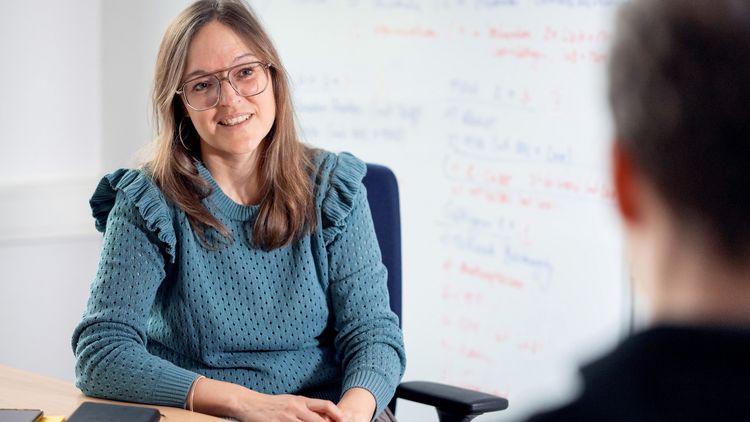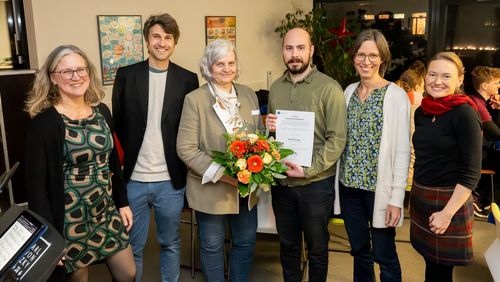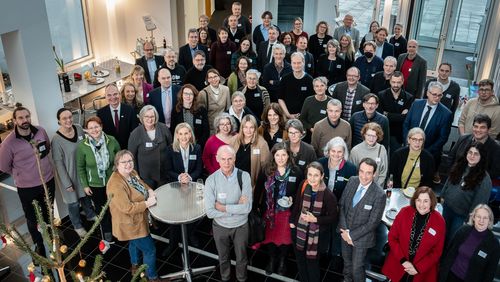As Consultant for Strategic Projects at the Department for Research and Transfer, Dr Ineke Hess is responsible for the university’s Excellence Strategy. The relaxed atmosphere and team spirit are the two things she likes most about the university.
You did your PhD in German studies but you didn't stay in research. Why was that?
After completing my PhD in 2013 I went to the University of Aarhus in Denmark as a DAAD lecturer. Being a DAAD Lecturer involves a variety of interesting tasks, but no research activities, so this job put me on a different course to the typical one for postdocs.
What brought you to Oldenburg?
I returned to Germany after the birth of my son. I knew I wanted to continue working at universities, so I started a part-time Master's programme in Academic Management. When I saw the job advertisement for a post here in Oldenburg I jumped at the chance.
What does your job involve?
I’m responsible for coordinating the university's Excellence Cluster planning, including the use of state and special funding as well as the “Universitätspauschale” (university lump sum) – the strategy premium for the university’s existing cluster Hearing4all. I also manage the university’s Collaborative Research Centres (CRCs), and I’m involved in the Presidential Board’s strategic processes. I worked on the compilation of the new version of the University of Oldenburg’s Regulations Governing the Principles for Safeguarding Good Academic Practice, for example.
You have a complex range of tasks. What motivates you?
For me, universities are like buildings that are constantly under construction. It takes a variety of craftmanship and expertise to create a functional and beautiful building. Here at the University of Oldenburg, many individuals are involved in the construction process and make their own special contribution to its success. In some cases, the Cluster of Excellence projects are based on decades of preparatory research work. But ten or 20 years ago those involved had no idea how successful this research and the university's strategic planning would become. I’m always impressed by our top researchers in particular. Dealing with them stimulates my mind because I come into contact with really exciting topics.
What else do you like about the University of Oldenburg?
Above all the relaxed and trusting collaboration across “ranks”. You can find yourself cycling to a joint appointment with the University President. In terms of research, I can safely say that this university has great potential. It started out as a small institution 50 years ago, grew steadily, and is now extremely strong for a university of its size when it comes to research. We have every reason to be optimistic regarding the development of our university.
Interview: Henning Kulbarsch






